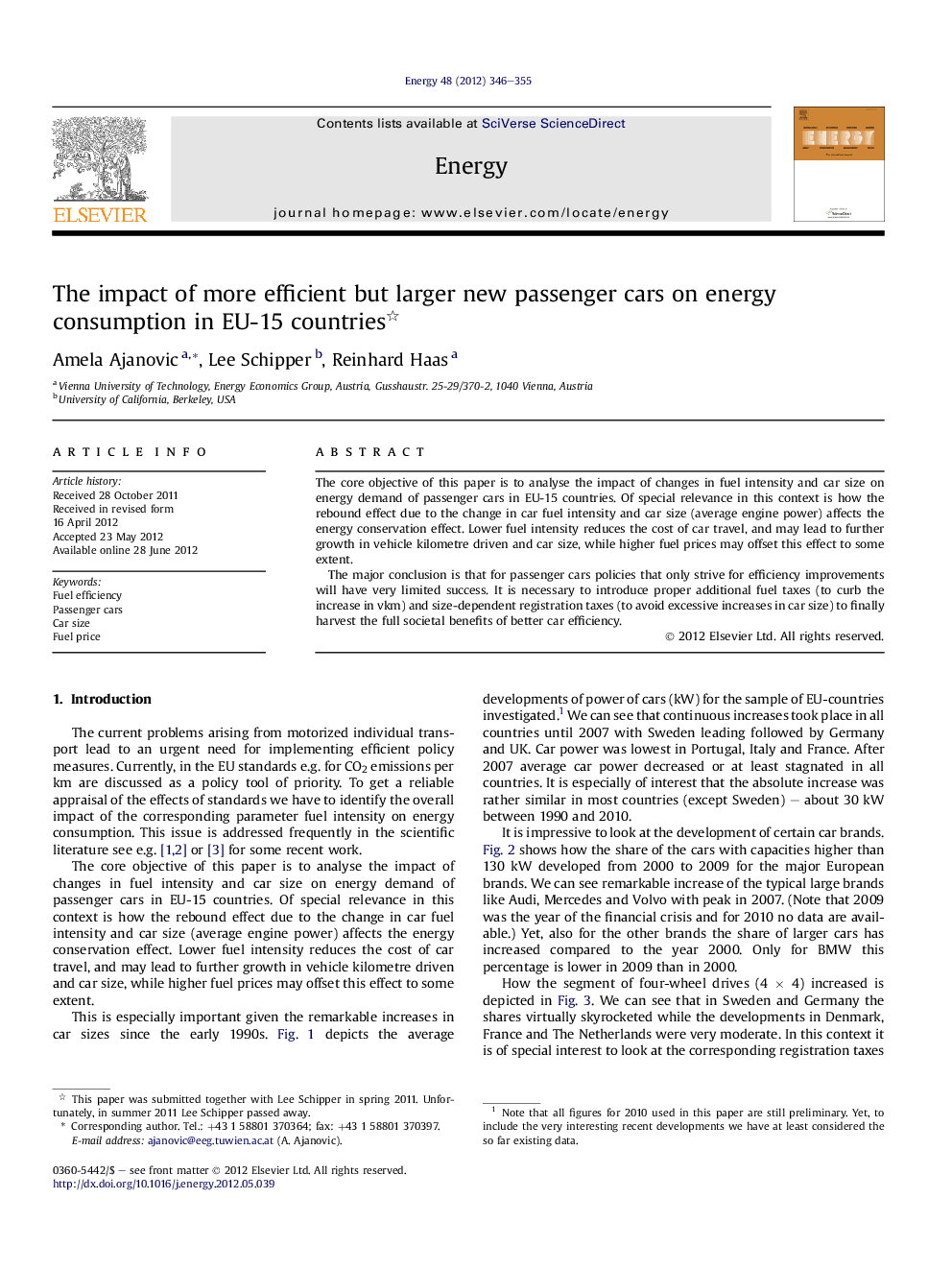| Article ID | Journal | Published Year | Pages | File Type |
|---|---|---|---|---|
| 1733357 | Energy | 2012 | 10 Pages |
The core objective of this paper is to analyse the impact of changes in fuel intensity and car size on energy demand of passenger cars in EU-15 countries. Of special relevance in this context is how the rebound effect due to the change in car fuel intensity and car size (average engine power) affects the energy conservation effect. Lower fuel intensity reduces the cost of car travel, and may lead to further growth in vehicle kilometre driven and car size, while higher fuel prices may offset this effect to some extent.The major conclusion is that for passenger cars policies that only strive for efficiency improvements will have very limited success. It is necessary to introduce proper additional fuel taxes (to curb the increase in vkm) and size-dependent registration taxes (to avoid excessive increases in car size) to finally harvest the full societal benefits of better car efficiency.
► Energy savings because of more efficient cars in EU-15 have been compensated largely by driving more with larger cars. ► Due to size increase of cars energy savings expected from efficiency improvements has been reduced by about 50%. ► Policies that only strive for efficiency improvements for passenger cars will have very limited success. ► Fuel and size-dependent registration taxes are necessary to harvest the full societal benefits of better car efficiency.
